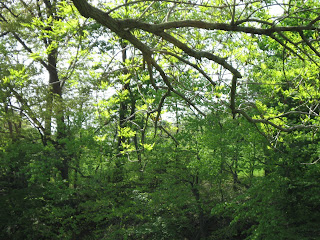It comforting to me to know that I am not the only one who spends time thinking. Michael Picard thought a great many things over, and came up with a really great book: “This is not a book – Philosophical Games and Thought Experiments to Give Your Mind a Workout” (Quid Publishing, 2007). Despite the title, it really is 160 pages about philosophy and four of them are on ethics and ecology. Picard writes “the inconvenient moral truth is that we must learn to widen the circle of our moral concern, and let it encompass the whole earth (Picard, p. 66).” I have been reading about the environment for nearly two decades now. I can’t remember every philosophic view I ever come upon, but I was very impressed with Picard’s breakdown. It may not cover every possible philosophy, but it is a good start. When I come upon another resource, I will blog about it too.
To summarize, we have utilitarian, rights-based views, virtue-based ethics and the ethics of care. “Utilitarianism is the idea that the moral worth of an action is determined solely by its utility in providing happiness or pleasure as summed among all sentient beings (Wikipedia, 2010).” Applied to environmental issues, it states that it is acceptable for humans to make use of resources as they see fit. A non-anthropocentric utilitarian view states that is all living creatures should make use of the environmental resources as they see fit. “Rights dominate most modern understandings of what actions are proper and which institutions are just (Stanford Encyclopedia of Philosophy, 2007).” Do we owe moral respect (respect of intrinsic rights) to natural areas, animals, plants and landscapes? Or do only humans and human creations possess rights?
Virtue based ethics hold “…the cultivation of moral character and embodiment of virtues as the essential issues in ethics, rather than the establishment of rules based on duties (deontological ethics) or consequences (consequentialism) (New World Encyclopedia, 2008).” Is it possible to argue for environmental issues based on virtues? The main focus for the environmentalist here is the movement beyond human based virtue to encompass the entire planet in our ideals. The ethics of care is “…a theory about what makes actions right or wrong (Wikipedia, 2009),” with an emphasis on relationships. “Domination over women is conceptually linked to domination of nature (Picard, p.69),” and the ethics of care seeks to define what actions are or are not morally acceptable.
Each of the four categories above provides food for thought on the motivations of environmentalists, venture capitalists, politicians and society’s decisions on environmental issues. Our inner thoughts hold the key to how history has come to pass and how we may in turn affect the future. The love of Mother Earth can, and perhaps should, be based upon an analysis of our views on ethics. These ethical views are personal, but turn an inner eye towards the entire world.
 Visual by www.PDImages.com
Visual by www.PDImages.comPicard, Michael. This is not a book – Philosophical Games and Thought Experiments to Give Your Mind a Workout. Quid Publishing, 2007















